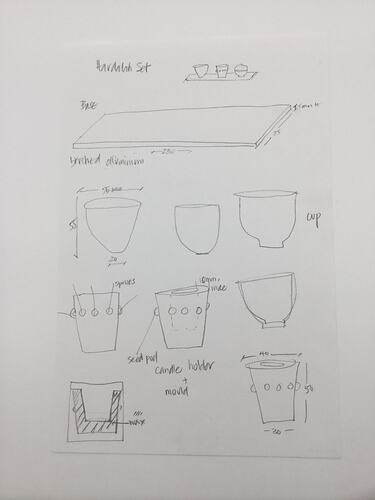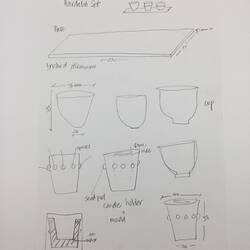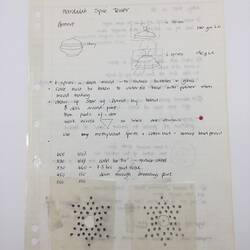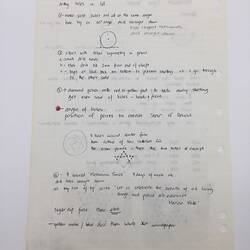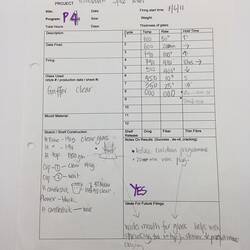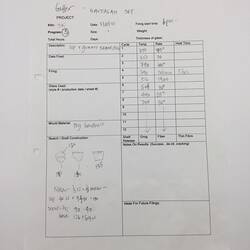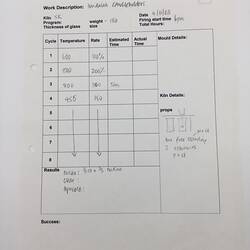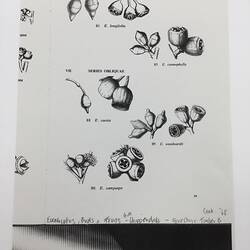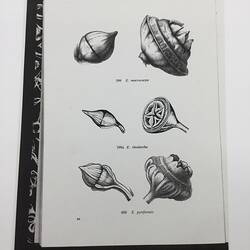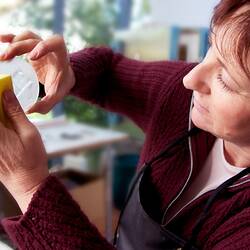Summary
Seven loose pages of technical notes, drawings and designs compiled by Melbourne glass artist Ede Horton in her home studio in Camberwell in the 2000s. It includes drawings for the handcrafted Jewish Havdalah sets consisting of a Kiddush cup, spice container, and candleholder that she produced, one of which is in the museum's collection.
The three pieces are made from kiln cast, lead crystal glass and they sit on an aluminium base. The spice container has the following inscription: 'Let us celebrate the breath of all living things and praise all essences.' (from Marcia Falk ''The Book of Blessings', Harper Collins, San Francisco 1996) The collection also includes artist tools, sketches and technical drawings and digital photographs.
Ede Horton is a glass artist who was born in Sydney, her mother Czechoslovakian and father German, both survivors of the Holocaust in Europe. Ede's Jewish heritage is central to her identity and has worked from her studio in Melbourne since 1981. She is inspired to both celebrate and reinterpret Jewish ritual practices through her glass creations. The Havdalah ceremony represented by this artwork incorporates candles, spices, wine and prayer to welcome in the new week.
A video of Ede reflecting on her work (and handling this set) can be viewed on the Immigration Museum Identity exhibition website: https://museumsvictoria.com.au/immigrationmuseum/resources/identity/people-like-me/
Physical Description
Seven loose pages
Significance
Jewish glass artist Ede Horton has a local and national profile and her work makes a significant contribution to representation of Jewish migration, culture and identity in the Museums's collection, engaging with traditional Jewish cultural traditions through a contemporary Australian lens.
More Information
-
Collecting Areas
-
Artist
Ms Ede Horton, Camberwell, Greater Melbourne, Victoria, Australia
-
Classification
-
Category
-
Discipline
-
Type of item
-
Keywords
Artistic Practices, Artists, Artworks, Religions: Judaism, Glasswork, Glass Making Tools, Jewish Customs, Jewish Immigration, Jewish Communities, Cultural Identity, Cultural Beliefs, Cultural Traditions, Czechoslovakian Immigration, German Immigration, Rituals & Beliefs, Religious Ceremonies, Religions
